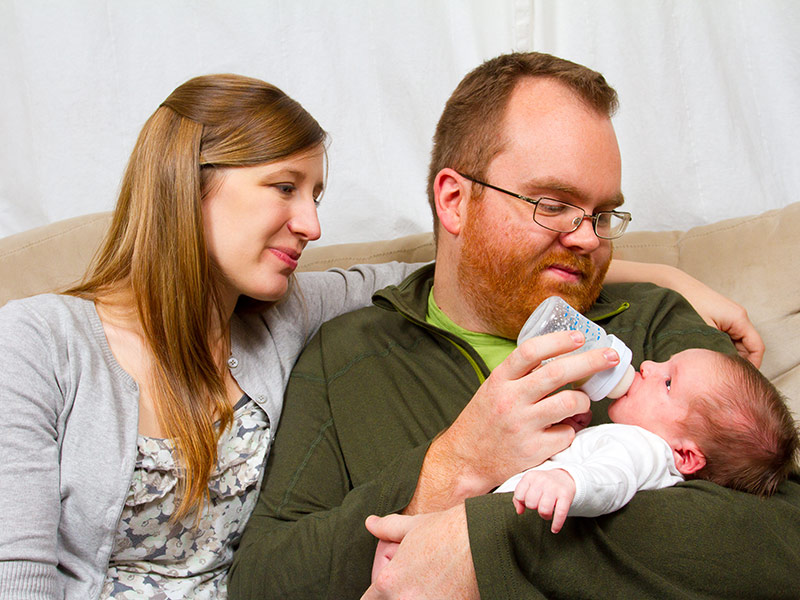Healthy newborns instinctively know what to do if they are placed skin to skin on their mothers’ body straight after birth. Sometimes though due to Medical interventions (for either the mother or the baby) this is not possible.
While natural, breastfeeding is still a learned skill, at least for the mother.
After giving birth a mother is often tired or sleep deprived and emotional from the hormone changes.
Some women Breastfeed easily from the first day and never have a problem but many meet hurdles along the way.
For the first 2 to 5 days after your baby is born, you will make a small amount of colostrum, which is all a healthy term baby need. Colostrum is a thick, rich milk that is high in nutrients. Around day 3 through 5, your ‘milk will come in’.
Here are some things that may cause a delay of ‘your milk coming in:’
- Severe stress
- Caesarean (surgical) delivery
- Bleeding after birth
- Infection or illness with fever
- Obesity
- Diabetes
- Thyroid conditions
- Strict or prolonged bed rest during pregnancy
> WE OFFER A FEEDING SUPPORT SERVICE
Milk supply depends on demand (milk removal.) Feeding frequently, when your baby shows hunger cues, is the best way to have a good supply. If you are having trouble with delayed milk production or a decrease in the amount of milk, then first take a look at the number and length of your feeds, and make sure that your baby is able to latch onto the breast well so that milk transfer can occur.
If you have a delay in your ‘milk coming in’, don’t feel discouraged.
Continue to express milk. That means removing milk from your breasts with a breast pump or by hand. And continue to breastfeed often, even if you are supplementing with formula for a few days. Babies who are premature or jaundiced are especially likely to need formula temporarily.
Sometimes a mother has a health condition that may temporarily delay the large increase in milk production usually seen between 3 to 5 days following birth. These mothers may not begin to produce large amounts of milk until 7 to 14 days after giving birth. If this happens to you, don’t feel discouraged. Continue to breastfeed frequently, even if you also must give your baby infant formula for a few days. Babies who are premature or jaundiced are especially likely to need formula temporarily.
Don’t worry if breastfeeding isn’t as you expected at first. It may take time and practice. Problems can usually be solved and help is available.
Don’t wait to get help if milk supply is ever a concern. The sooner you do, the better.
Knowing all of this though sometimes Breastfeeding is not the right fit for a family.
I have cared for families that have felt strongly about not wanting to Breastfeed. Mum may have previously been sexually abused or Mum or Dad has strong emotional feelings about this. Some Mum’s have developed significant Postnatal Anxiety or Depression that has been debilitating. They have truly not wanted to BF though feel they will be judged if they choose to bottle feed.
For some Mum’s they have chosen to express and feed their baby via the bottle. This is extremely taxing though for some families is the right choice for them.
A fed baby is the best way to feed a baby.

How often should I feed?
Breastfeeding your baby whenever they want is the key to building a good supply and preventing many problems. This is offering the breast whenever they are showing hunger cues, as many times as they want through the day and night.
This may mean 6-8 times with in 24 hr or be up to 12 Breastfeeds per breast per day on those really hungry days.
Some babies feed quickly being all done and dusted in 10mins, while others feed more slowly with a feed taking up to the full hour. Some feed in spurts with rests in between and some seem to feed ‘all the time’!
You cannot overfeed a breastfed baby.
Babies are born with the instinct to know when they have had enough and this matches their body’s needs.
Feeding patterns change. Let your baby lead you and FEED ACCORDING TO NEED!
WHO recommend that infants be exclusively Breastfeed for the first 6 months and then ongoing breastfeeding until two years and beyond with appropriate introduction of complementary foods.
Your baby’s weight:
Some mothers worry that their baby is not growing as they expect or compared with other babies they know. It’s important to remember that all babies are different. The weight and height charts used by your local child health nurse provide a general guide to the overall trend of your baby’s health.
Many other factors contribute to the rate of weight gain, including sickness, the clothes the baby is wearing, whether the scales used are the same, whether the baby has just breastfed or is due for a feed and your baby’s previous growth.
Breastfed babies can have different weight gain patterns from babies fed by formula.
Remember that Weight gain is only one of the things used to assess infant health. (Speak with your child health nurse if you have any concerns).
- It is normal for babies to lose weight after they are born, no matter what or how they are fed.
- It is normal for breastfed babies to lose weight for the first few days after birth. (There are many factors to take into considerations ie if a mother had a large fluid load through an IV during labour)
- Weight loss in newborns is expressed as a percentage of the birthweight.
- A maximum weight loss of 7-10% in the first week is considered normal.
How do I know if I have enough milk?
Many mothers worry about how much milk their breastfed baby is getting. Low milk supply is often the reason most mothers use when giving up breast feeding. Yet it is uncommon for a mother to not be able to produce enough milk.
Some signs to look for to make sure your baby is getting enough milk:
- Does your baby have at least 6 wet cloth nappies or five heavily wet disposable nappies / day?
- Does your baby have regular soft bowel motions? Babies under 6 weeks of age usually have a least 3-4 bowel motions in a 24 hr period. Babies older than this may have fewer bowel motions (even not going for a few days).
- Is your baby gaining weight and starting to fill out their clothes?
There are some periods of time when your baby seems fussier and wants to Breastfeed more often than usual. You may have heard of these as ‘growth spurts’, ‘appetite increases’, or ‘wonder weeks’.
It is now known that, after the newborn period, babies do not need increased amounts of milk as they grow bigger. After three months, babies grow more slowly and use the milk more efficiently.
If your older baby is unsettled, it may not be because they require more milk.
Therefore, going for that bottle of milk may not be the right solution. This in fact may cause a problem with your milk supply, because your baby will take less from the breast and this can reduce your milk supply.
The best way is to follow your babies lead and fit in some extra feeds for a couple of days (when your baby wants them) and your baby should settle down again.
Information sourced from Australian Breastfeeding Association (ABA), and John Hopkins Medicine.

